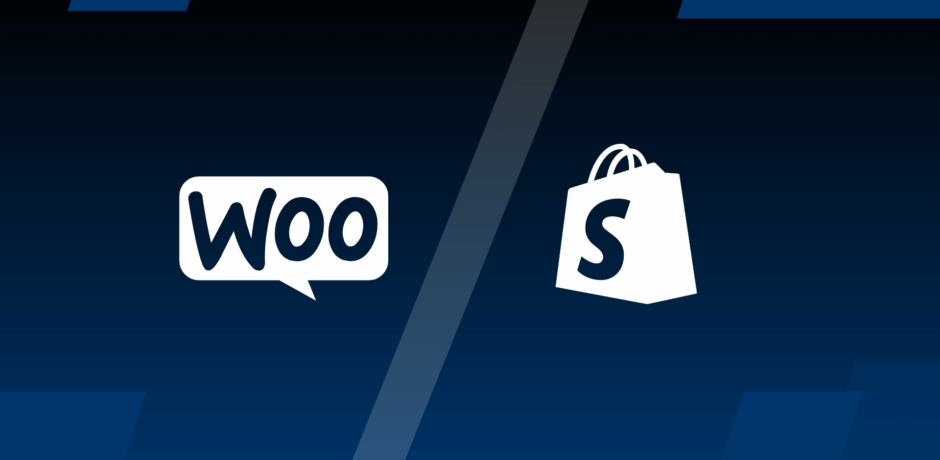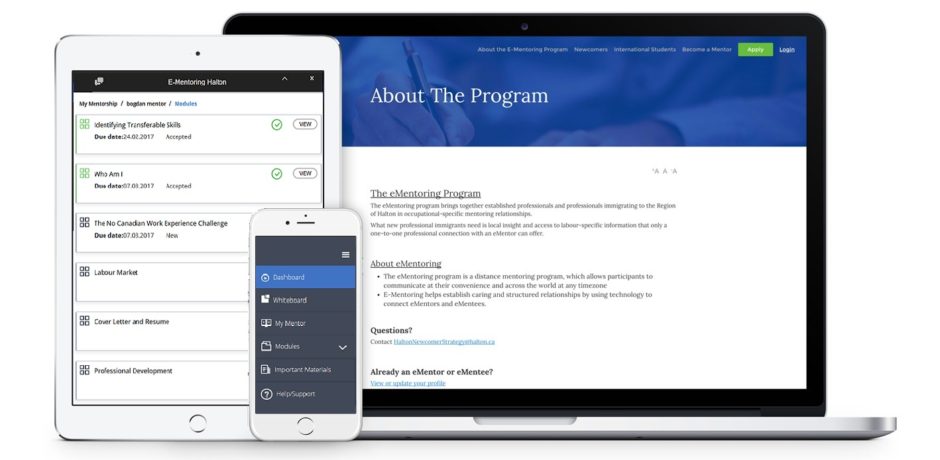platform
Shopify vs WooCommerce for Publishers: Choosing the Right E-commerce Platform
As digital publishers navigate the evolving landscape of content, marketing, and commerce, the pressure to monetize brands in new ways has never been greater. Whether you’re managing a publishing house, overseeing editorial teams, or leading a media group like Blue Ant Media, it’s essential to choose an e-commerce platform that empowers your business model,not just today, but as you scale and diversify. At Vertical, we’ve seen both the triumphs and roadblocks publishers face when selecting technology for online stores, subscriptions, and merchandise. Here we’ll break down Shopify and WooCommerce for publishers, based on our years of experience developing and maintaining robust solutions for leading Canadian publishers and content brands.
Understanding the Real Needs of Modern Publishers
Publishers today do far more than just sell books or magazines,they’re digital brands engaging audiences with blogs, e-books, events, training courses, and branded merchandise. The right e-commerce solution must support:
- Seamless product discovery (for everything from books and print to digital content and merchandising)
- Easy content management for editorial teams (without heavy tech skills)
- Bilingual or multi-lingual capabilities (especially important for Canadian publishers)
- Advanced search and filter, intuitive navigation, and accessible design
- Integration with marketing, CRM, or third-party publishing tools
- Flexible checkout, taxes (multiple regions/countries), subscription and membership support
Shopify: The Managed E-commerce Powerhouse
Shopify provides an all-in-one, hosted environment ideal for publishers who value reliability, rapid setup, and minimal technical overhead. We’ve built high-profile publisher websites,like the modern Anansi + Groundwood Books platform,on Shopify, harnessing features publishers appreciate:
- Ease of Use: Shopify’s platform is intuitive for non-technical teams; admins can easily update products, run promotions, and fulfill orders.
- Security & Uptime: Hosting, SSL, and PCI compliance are handled by Shopify, freeing publishers from infrastructure maintenance.
- App Ecosystem: Extendable via a mature app marketplace, covering everything from reviews to advanced analytics.
- Accessibility & Compliance: Customizable themes can be optimized for WCAG and AODA accessibility, critical for public-sector or educational publishers.
- Internationalization: Support for multi-currency and multi-language, suitable for publishers serving diverse audiences.
- Scalability: Handles flash sales, high-traffic launches, and seasonal peaks with ease.
However, Shopify does come with certain trade-offs:
- Template Flexibility: While it supports custom themes, deep customization can be limited by Shopify’s proprietary templating language and app dependencies.
- Ongoing Costs: Monthly fees and transaction charges may add up, especially if many paid apps are needed or if margins are slim.
- Ownership of Data & Export: You have less direct control over server/database exports compared to self-hosted options.
WooCommerce: Flexible Publishing Meets E-commerce
WooCommerce is a free, open-source WordPress plugin,meaning it transforms a content-driven site into a feature-rich store. For many publishers, especially those who already run content sites or blogs on WordPress, WooCommerce feels like a natural extension. Key advantages for publishers include:
- Integration with Editorial Workflow: Your online store and all content live in the same CMS. Editorial, marketing, and commerce teams can collaborate in a unified environment.
- Total Customization: Developers can tailor everything,from product types (books, digital downloads, bundles) to checkout processes, user roles, and content gating.
- Advanced SEO: WordPress, with plugins like Yoast SEO, is unrivalled for organic search optimization,vital for content-heavy publishing sites.
- Cost Control: WooCommerce itself is free; costs are incurred for hosting, premium plugins, and development, allowing for flexible budgeting and no per-transaction fees.
- Third-Party Integration: Seamlessly connect with marketing tools (Mailchimp, CRMs), subscription engines, and analytics.
- Bespoke Design: Easily achieve pixel-perfect designs that match publisher branding,crucial for editorial integrity.
On the flip side, WooCommerce demands more technical management:
- Hosting & Maintenance: Publishers (or their development partners) must handle web hosting, security, and backups. Regular plugin/theme updates are critical for reliability.
- Resource Requirements: Large catalogs or multi-media resources (e.g., 30,000+ books or files) require performance optimization and advanced search (such as Algolia integration, which we’ve used extensively).
Crucial Decision Points for Publishers
Based on our hands-on projects with major Canadian publishers, these are the areas where decisions often hinge:
1. Editorial Control & Content Integration
- If publishing and commerce need tight integration (e.g., blending blogs, book launches, author pages, digital resources), WooCommerce delivers a seamless experience. Editorial teams can create rich product pages, author bios, and resource libraries,without switching platforms.
- Shopify supports content through its built-in blogging features, but these lack the sophistication, taxonomy, and publishing workflow flexibility of WordPress.
2. Catalog Complexity & Custom Products
- WooCommerce’s custom post types and taxonomy flexibility shine when handling large libraries, unique product types, or complex categorization (series, genres, contributors).
- Shopify offers robust catalog management, but highly customized structures may require additional development or workarounds.
3. Multi-Channel & International Sales
- Shopify handles cross-border sales, taxes, and multiple currencies easily,ideal for publishers selling globally out of the box.
- WooCommerce can match this flexibility, but it requires more configuration and specialized plugins for compliance and localization.
4. Digital vs. Physical Products
- Both platforms support physical and digital products (e-books, DRM, downloads). WooCommerce is especially strong at supporting hybrid offerings,like course bundles, memberships, and learning materials, using integrations like LearnDash.
5. Growth and Support Requirements
- For publishers seeking a plug-and-play approach with access to a wide range of official support and a guaranteed SLA, Shopify’s managed hosting is a major advantage.
- For those who value ownership, customized features, and the ability to innovate (especially on a content-centric roadmap), WooCommerce,supported by a team like ours,offers greater long-term freedom.
The Vertical Approach: Lessons from the Front Lines
At Vertical, we’ve led successful launches for both Shopify and WooCommerce in the publishing sector, adapting each to the client’s editorial and business model. Here’s what we’ve learned:
- Content-Led Strategies: Publishers who leverage content as a trust driver and community-building tool often gain more value anchoring e-commerce in WooCommerce. You keep SEO equity, control over structure, and editorial flexibility.
- Rapid Retail Launches: Teams focused primarily on product sales, straightforward fulfillment, or fast market entry see big gains from Shopify’s streamlined admin and scalability.
- Accessibility & Legal Compliance: Both platforms can achieve WCAG and AODA compliance, but a development partner familiar with accessibility nuances is critical. Our work with accessible Shopify stores has proven that clear navigation and alt text, proper contrast, and screen reader compatibility drive engagement from all audiences.
Quick Comparison Table
| Feature | Shopify | WooCommerce |
| Hosting & Security | Fully managed, secure by default | Self-hosted, requires ongoing care |
| Catalog Flexibility | Strong, but more rigid | Extremely adaptable |
| Editorial Integration | Basic blogging | Rich content, taxonomy, SEO |
| Internationalization | Out-of-the-box | Plugin-based, flexible |
| Technical Overhead | Minimal | Significant (but more control) |
| Cost Structure | Monthly plan + fees | Self-managed, plugin costs |
Making the Right Choice for Publishing Success
Ultimately, the choice between Shopify and WooCommerce for publishers comes down to how much you value editorial richness, customization, and platform ownership versus ease, scale, and managed support. Neither platform is inherently better for everyone,what matters is aligning your tech stack with your publishing vision, internal resources, and audience priorities.
Partnering with a team who truly understands the nuances of both platforms, and the realities of publishing, makes the difference between a store that simply functions and one that fuels community, brand loyalty, and sustainable growth. We’re here to help publishers make those choices confidently,rooted in experience, not just apps and shiny features.
If You’re Ready to Take Your Publishing Brand Online…
Whether you’re strategizing a store launch or looking to untangle a complex catalog, connect with Vertical,your Toronto-based digital specialists in WordPress, WooCommerce, and Shopify for publishers. Let’s make your e-commerce vision not just functional, but genuinely impactful for your audience and your business.
E-Mentoring Halton Online Collaboration Platform Launched
The VerticalWave Solutions team is proud to announce the launch of E-Mentoring Halton, a new generation type of collaboration platform, dedicated to provide online mentoring partnerships for residents of Halton Region. It is a complex program, designed to bridge the gap between established professionals and professionals immigrating to the Region of Halton in occupational-specific mentoring relationships. Moreover, the platform is engineered to facilitate communication between program participants, across the world at any time zone.
This is a scalable system, tailored to put the most efficient collaboration, communication and sharing tools at the fingertips of e-Mentors and e-Mentees. The challenge was to merge all functionality features with an intuitive and easy to use design for the end-user and for system administrators.
Using the powerful Drupal CMS, our team successfully implemented a wide variety of functional features and a modern responsive design, combining state of the art mobile and desktop UI and UX into an interactive and secure specialty platform.
E-Mentoring Halton boasts an innovative resource sharing system, which provides users with access to documents, videos, links and notes. Users have the possibility to communicate via comments or the integrated instant messaging system. At the same time they can schedule meetings and calls to enhance their collaboration and reach the end goal easier, while a built-in notification system alerts users and administrators of various activities via email.
System administrators can easily designate groups and associate users with them and create specific modules, tasks and evaluations for each group and user. Moreover, the content and user management system is designed to provide easy admin access to all resources and user accounts. Administrators control the back-end and entire collaboration system in a very straight-forward way to ensure the lowest interaction latency time possible.
As said, the E-Mentoring Halton platform is based on custom functionalities and employs many features, but using the latest Drupal 7 installment, combined with custom built modules, a clean and well-structured programming code and a solid database system, our team has delivered a modern, customizable and reliable solution for the client.









